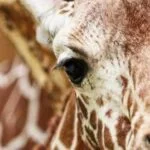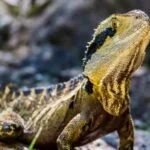Human-Animal Interactions detailed in new Five Domains Model
An animal welfare charity that promotes better conditions for wild animals living in captivity, has welcomed the new Five Domains Model of animal welfare.
UK-based charity Wild Welfare, referred to the new 2020 Five Domains Model, which includes the latest scientific thinking on the welfare implications of human–animal interactions, as “a hugely important document”, when it was published recently.
The Five Domains Model for animal welfare assessment was developed as a way to accurately identify and classify the severity of animal welfare compromise and the 2020 version now includes the most up to date scientific theory on the positive and negative implications of human-animal interactions.
Wild Welfare’s acting UK director, Simon Marsh, said: “We are very pleased to see this update on the Five Domains Model. The inclusion of guidance on the potential impacts of human interactions on animal welfare makes this a hugely important document.
“As a charity, we already use the Model and its methods for evaluating and improving animal welfare in our work to make all zoos good zoos. We reference it widely in our literature and it forms a key component of our animal welfare training.”
First documented in 1994, Professor David Mellor and Dr Cam Reid developed the Five Domains Model as a tool for assessing animal welfare. The Model encompasses four physical domains (nutrition, environment, health and behaviour) and a fifth domain, mental state, which considers the ‘affective state’ of an animal, in other words its psychological wellbeing.
It is this affective state that has come to be considered such an important element of the Five Domains Model, and sets it aside from other animal welfare guidance, such as the Five Freedoms. The affective state denotes the animal’s overall feelings and the Model, rather than only looking at how to minimise negative states as a way of ensuring good welfare, demonstrates the importance of positive experiences for good animal welfare.
Interactive experiences between animals and visitors in zoos and aquariums continue to rise in both availability and popularity. Wild Welfare visits zoos around the world and sees first-hand the range of interactions on offer. Some are designed purely for human entertainment and can cause harm to animals, but some offer the potential to provide interesting and challenging opportunities for the animals involved and can contribute to their positive welfare in captivity.
“Positive human-animal interactions are very important for the health and wellbeing of captive wild animals, but with the increase in popularity of these interactions in zoos and captive facilities globally, some of which haven’t been given proper consideration in terms of the animal’s welfare, this piece of research has never been more welcome,” said Simon.
The new Five Domains Model examines the human-animal interactions likely to generate both negative affects, such as aversive training techniques and those likely to generate positive affects, for example animal care staff providing a favourite food.
In 2019, Wild Welfare contributed to a published study on the welfare implications for captive wild animals used in animal-visitor interactions in zoos and aquariums around the world.
The 2020 Five Domains Model: Including Human–Animal Interactions in Assessments of Animal Welfare, can be read and downloaded from Wild Welfare’s Welfare and Legislation page.
~ENDS~
Notes to Editors
For more information or interview requests please contact Wild Welfare on communications@wildwelfare.org
Wild Welfare is a global organisation committed to improving animal welfare for captive wild animals. By uniting the world’s leading zoos, zoo associations and animal welfare organisations, we build trusting partnerships that help provide long-term solutions to critical wild animal welfare issues.
Our vision is to end the suffering of captive wild animals around the world and ensure full and sustainable protection is given to all animals in human care. Find out more at wildwelfare.org. Registered charity in England and Wales No.1165941.

![Squirrel monkey in walk-through zoo enclosure, Image © קופיף בגן החיות בקרית מוצקין Pikiwiki Israel [CC BY 2.5] via Wikimedia Commons](https://wildwelfare.org/wp-content/uploads/2018/06/Walk-through-monkeys.jpg.webp)



